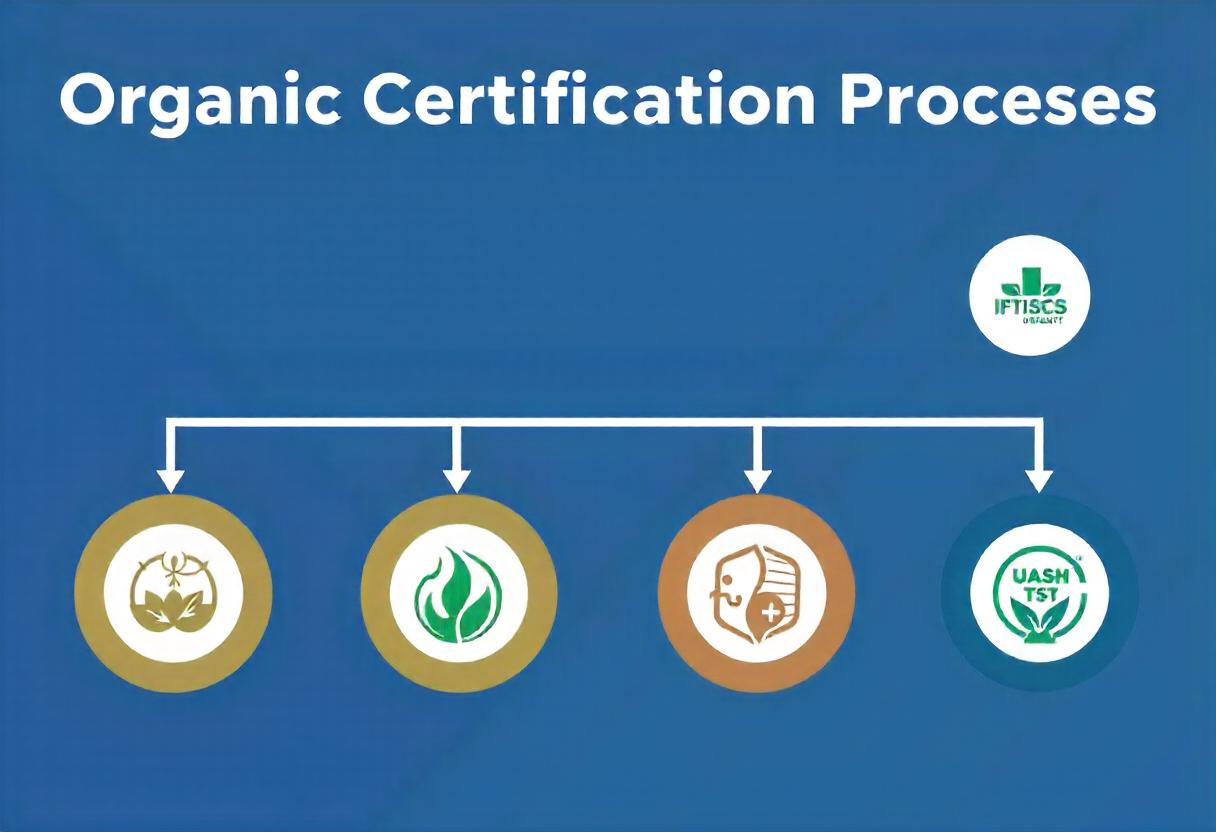
Organic certification is a process by which producers of organic products ensure that their production methods meet specific standards required for organic farming. These standards aim to promote sustainability, biodiversity, and the use of natural processes over synthetic chemicals. Organic certification guarantees consumers that the products they purchase are genuinely organic.
Eligibility for Organic Certification
To be eligible for organic certification, farmers and producers must meet certain requirements. This includes ensuring that their farming practices comply with national or international organic standards, such as avoiding the use of synthetic pesticides, fertilizers, and genetically modified organisms (GMOs). The certification process also demands that livestock are raised in humane conditions, and that there is minimal environmental impact from the farming activities.
Steps in the Organic Certification Process
Organic certification involves several steps to ensure compliance with organic standards. The main steps include:
- Application: Farmers or producers interested in organic certification need to submit an application to a certification body. This application includes details about the farm or production process, such as land history, crop management, and any substances used in the production process.
- Inspection: After the application is reviewed, an on-site inspection is scheduled. Inspectors visit the farm or production facility to verify that it meets the organic standards. They will review records, examine the crops, and check the facilities used in production.
- Certification Decision: Based on the inspection report, the certification body will determine whether the farm or production facility complies with organic standards. If it does, the producer is granted organic certification.
- Continual Monitoring: Organic certification is not a one-time process. Certified producers are subject to annual inspections and must maintain records to demonstrate ongoing compliance with organic standards.
Certification Bodies for Organic Farming
There are several certification bodies globally responsible for ensuring that organic standards are maintained. In the United States, for example, the United States Department of Agriculture (USDA) runs the National Organic Program (NOP). In Europe, the European Union (EU) Organic Certification is widely recognized. Each certification body has its own set of regulations that align with internationally recognized organic farming principles.
Costs of Organic Certification
The cost of organic certification varies depending on the size of the farm or production facility and the certifying agency. Some of the costs involved include application fees, inspection fees, and any additional fees for monitoring or continued certification. While organic certification can be expensive for small-scale farmers, many governments and organizations offer financial assistance or cost-sharing programs to help offset these expenses.
Organic Labeling and Standards
Once a producer is certified, they are allowed to use specific organic labels on their products. These labels help consumers identify genuinely organic products and may vary by region. For instance, in the United States, USDA Organic labels are used, while in the European Union, the EU Organic logo is required.
Organic standards generally include rules for crop production, livestock farming, and processing. Producers must avoid synthetic pesticides and fertilizers, maintain soil health through crop rotation, and provide livestock with access to the outdoors. These standards are designed to promote environmental sustainability and animal welfare.
Transitioning to Organic Farming
Transitioning to organic farming can take time, as it involves adopting new farming practices and often requires a period of adjustment. In many cases, the land used for organic farming must undergo a conversion period, typically lasting three years, during which it is gradually transitioned from conventional to organic practices. This period ensures that any chemical residues in the soil are reduced, and that the farming system is aligned with organic principles before certification is granted.
Benefits of Organic Certification
Organic certification offers numerous benefits for producers and consumers. For producers, certification provides access to premium markets and allows them to sell their products at a higher price. It also assures consumers that the products they are purchasing are produced in an environmentally friendly and sustainable manner.
For consumers, organic certification offers the peace of mind that the products they buy are free from harmful chemicals, genetically modified organisms (GMOs), and are produced with high standards of animal welfare and environmental sustainability.